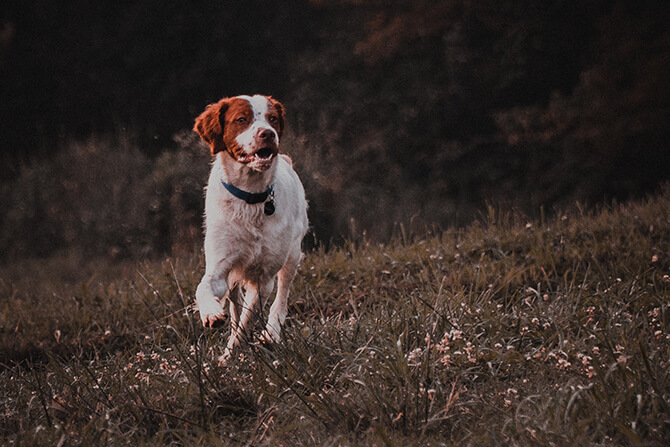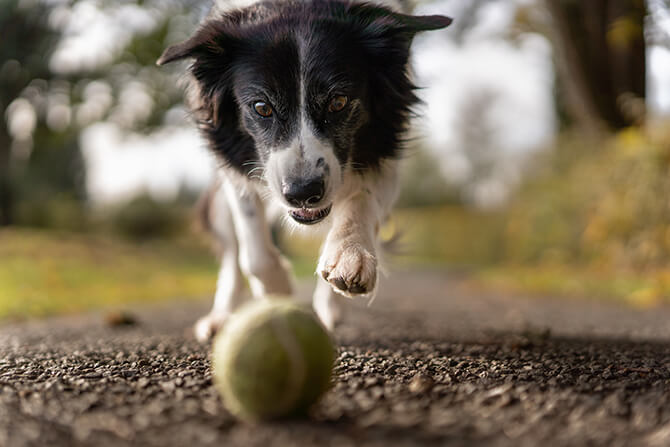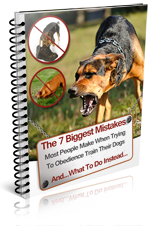
Aggressive dogs are a danger to other people, animals, and even to themsleves. So how do we stop dog aggression without harming the dog and ourselves?
There are several ways to minimize or curb aggressive behavior, and depending on the level of canine aggression and the breed of dog, the re-training can be relatively simple or it can be very complex.
Breed of dog
Breeds of dogs such as German Shepherds, Rottweilers, Doberman Pinchers and herding breeds are more prone to aggression. This is because this trait has been bred into these types of dogs. If your dog belongs to these breeds and has begun to show aggression it is important to seek the help of a qualified trainer to prevent the situation from escalating. If the dog is still young, a general obedience class and extra socialization may be all that is necessary. If you know that your dog is aggressive it is important to notify the trainer prior to attending the class.
Muzzling
Head control devices or muzzles can be used with aggressive dogs to prevent bites or other dangerous situations. Do not use the muzzle as a punishment, rather as a precautionary measure. Avoid jerking the dog's head around using either a muzzle or a control collar. Gentle tension and positive praise for good behavior will work for most dogs.
Professional trainers
If you live in an area where a professional trainer operates try contacting them for individual training sessions with the dog. This is particularly important if the dog has assumed a dominant role in the family. Most trainers will also offer home sessions to help you learn to interact with your dog in the home environment, on the dog's territory. This is important if your dog behaves differently at home than out in public.
Veterinary check
If your dog's behavior has changed dramatically or quickly, schedule a complete check-up with your vet. There are many medical conditions that can lead to a behavior change, and as noted above, some breeds of dog are more prone to dog aggression than others.
Likewise, sometimes the problem is simple. Animals in pain will respond aggressively and it may not be a behavioral issue at all.
Changes in the environment
Dogs are sensitive to any changes in the family structure, including new humans and new animals in the house. They may change their behavior and become aggressive if they are having trouble adjusting. If you have an aggressive dog getting another pet will rarely improve the situation, and will usually make it worse. Get your dog's aggression under control before introducing any new pets.
Safety
While last on this list, it should be first in the owner's mind. It is your duty, as a responsible dog owner, to limit the contact your dog has with other dogs and people while you are working on your dog's problems. If you believe your dog is still a threat to others, you MUST muzzle and limit the interactions the dangerous dog or puppy has with other animals, adults, and children. Don't become another victim to lawsuits against irresponsible dog owners who expose their aggressive dogs to an unprepared society. Stop your dog from biting and being aggressive now!


